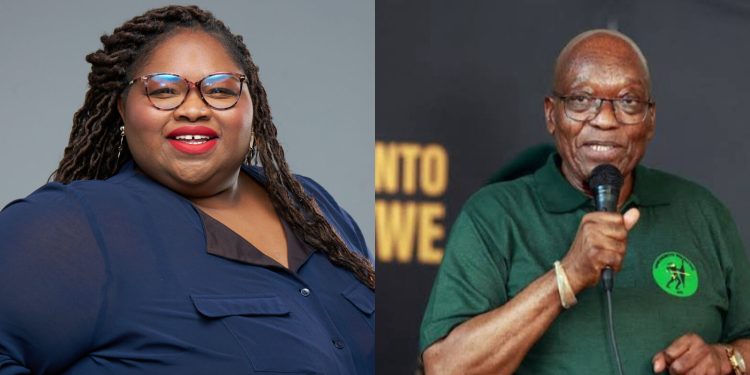South African journalist Tshidi Madia has become a polarizing figure on social media, with public opinion sharply divided over her reporting style and focus on former President Jacob Zuma.
To Zuma’s supporters, Madia represented what they saw as biased media coverage. Many accused her of being “on a mission to destroy one man” rather than practicing objective journalism. Her frequent criticism of Zuma, even during periods when he was not actively in the news, drew particular ire from his followers.
To her supporters, however, Madia embodied fearless journalism. They praised her willingness to confront powerful figures and speak truth to power. “She didn’t hate Zuma. She hated corruption. She hated injustice,” one supporter commented, capturing the sentiment of those who admired her work.
Madia’s reporting, opinion pieces, and television appearances during the height of the state capture investigations made her a prominent voice in South African political journalism. Her approach—characterized by direct questioning and uncompromising commentary—made her both celebrated and controversial.
The ongoing debate about her legacy reflects broader divisions in South African society regarding media, political accountability, and how the country should address its recent history of corruption. Regardless of perspective, it’s clear that Madia left a significant mark on South Africa’s political journalism landscape, challenging powerful institutions and figures throughout her career.






















